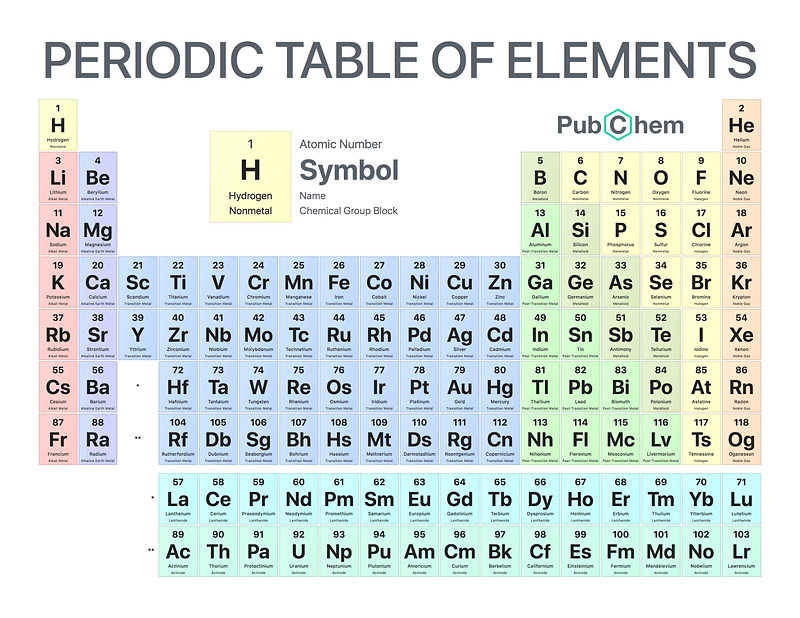Are you losing by making these 2 MISTAKES when reading nonfiction?
“We all make mistakes”.
Yeah, we do, but, as the nature of mistakes are, they can cost you.

If you’re making these mistakes when reading nonfiction, you’re really losing.
If you’re looking to waste a lot of your time and keep making terrible mistakes, don’t read this post.
If you’re ready to start respecting your time, scroll down and begin reading.
Mistake/ Lesson #1- A General Understanding is TRASH!
If you’re reading nonfiction, amazing job- you’re going to be learning a LOT of things when you’re reading. However, there is a great chance that you won’t remember most of what you read.
One of my philosophies is to not focus too much on the exact methods and tactics offered by books but instead try to grasp a general knowledge of a subject.
However, I’ll admit something: This philosophy is wrong.
(And so are the methods I used for writing my short stories)
If you’re looking to make fast progress in a subject and learn a lot (and not forget it), you shouldn’t just be looking to grasp a general understanding- you can do that by looking at the table of contents and skimming through each chapter. If you do that for 10 books you’ll have a general understanding.
But you probably don’t want that “general” of an understanding. Yeah, you’ll know a small portion of the subject you’re learning about, but it will not be enough.
You can achieve more benefit from reading one book thoroughly than skimming through 100 books.
For any nonfiction subject, 99% of the general information will probably be the same. After 10 books you’re barely going to be able to learn something.
What if you just dove deep into one book?
You’d gain a lot more knowledge.
In my opinion, one good book can teach you everything you need to know about a subject. A lot of books are entire lives being retold- why would you want to know the rough events of 1,000 lives and common lessons that you’ve heard 1,000 times vs. learning detailed amounts about one life and hearing lessons that you’ve never heard before.
Just look at Can’t Hurt Me by David Goggins. You could read 100 books about living as a soldier and you might learn about the “warrior’s/ soldier’s mentality” but you’d never actually learn how to achieve the soldier’s mentality. The lessons that are in 90 of 100 soldier books are going to be average lessons. If you want to be an average soldier, okay fine, go listen to them.
However, David Goggins was an uncommon solider. His lessons would be so much more beneficial. ONE of his lessons, ONE of his teaching points would probably be better than all the average teaching points combined. Just learning intricately about David’s 40% Rule and how he discovered it would obviously generate so much more knowledge and action than skimming through a page and reading the sentence Prioritize Teamwork!

If you had a detailed look into Can’t Hurt Me and completed the challenges, you’d finish the book a new person. If you spent the same amount of time skimming through average soldier books and reading sentences that you didn’t have any time to learn about (since you didn’t pay attention to them) you’d have lost quite a bit of time. You might have gained some words, you might have gained some lesson “knowledge”, but you had 0 emotion to accompany any words.
Because of this, you wouldn’t have transferred any knowledge into your life and no amount of quotes and lessons could change that.
One of the reasons I make my posts longer than they used to be is because I realized I want my reader to take my lessons to heart. I really try to make every blog post really good so that if my reader intricately looks at the post and tries to gain from it, they can learn a decade of experience in a couple of hours.
What’s my main point with Mistake/ Lesson #1?
It’s that a general understanding of a subject is trash. Specialize and learn superior lessons.
How to learn the MOST about a subject (The 2-Step Plan to Learn):
Step 1. Find a superior book- the best in the industry.
Step 2. Read it like it’s the Holy Grail.
Ex.
You want to learn about sleep.

You’re not going to order 10 books off Amazon and have a quick look at them all, instead You’re going to follow Step 1 and find a really good sleep book (Why We Sleep by Matthew Walker).
After that, You’d read Why We Sleep with laser focus. Every lesson will be written down. You’d carry a journal with yourself to analyze each lesson, to think about what it means and how it works. You’d create opinions of lessons.
Yeah, it’s going to take a while, but after you finish the book, which Matthew Walker has spent most of his life developing and researching for, you’d have the same knowledge as if you took a PHD in the subject of sleep.
There’s really a focus of quality over quantity here. You should not try to gain a general understanding by reading the most quantity of your subject here.
What’s going to get you to learn incredible amounts is if you find a quality book, research tactics to learn more and remember more from the book (maybe by reading Make it Stick), then read that quality book with extreme-quality focus and dedication.
Not only will you get a general understanding of the subject, you’ll also learn the ins-and-outs: everything you can learn.
If you read Can’t Hurt Me with quality determination to learn the most possible, you might run an ultra marathon in the next 5 years and get promoted. You’d achieve any success possible.

If you read Why We Sleep with quality determination to learn the most possible, you might double your happiness and every other factor in life. You’d achieve any success possible.
Main point: Find a superior book to read and attack it with your determination to learn.
P.S. Yes, you can learn a lifetime of information about a subject in hours. I AM TALKING TO YOU! After this article, if you’re serious, don’t say, “Oh, I’ll try it out sometime”. Stop skimming, think of a subject you’ve always wanted to learn, and follow the 2-Step Plan to Learn.
P.P.S. I see you and I trust you. I trust you, (whatever your name is). I trust you to take this advice to heart because you’ve invested quite some time into reading this article (and I’m proud of you for that). Don’t waste this advice. You got this.
P.P.P.S If you want to read more over the summer, check out this post.
Mistake/ Lesson #2- Make it Stick.
DISCLAIMER: IF YOU DON’T WANT TO LEARN A HUGE AMOUNT NOT ONLY FROM BOOKS BUT ALSO IN YOUR ENTIRE LIFE, DON’T READ THIS.
Make it Stick is an amazing book (a superior one that is worth following the 2-Step Plan to Learn).
(Another really good book is Never Split the Difference)
A big mistake some readers can make is “learning wrong”. That sounds contradictory because “all learning is right!” but not all learning is right, trust me.
The book Make it Stick has a couple of lessons which I will share with you now. These lessons will go against what you’ve been told to learn all your life and they may be hard to implement. Don’t take the path of least resistance and not implement these tactics, instead opting for rereading until you’re dead. Learn these tactics and IMPLEMENT them in your entire life and you’ll be a genius.
1. Don’t reread.
Rereading and anything that involves repetition has been regarded a great way to learn for a long time.
It’s not.
The first weapon up your sleeve to gain an advantage over people who don’t use these tactics that might even TRIPLE how much you remember is the power of Active Recall or just Recall in general.
When you’re in an exam and the question asks you to name something (ex. Name the 20th element of the Periodic Table), you already have that information somewhere in your brain. What you’re doing is recalling that information (answering Calcium).

Why not practice and get really good at doing exactly that?
The exam doesn’t ask you to reread the periodic table, it asks you to recall the information you studied and learned.
If you practice recalling, you’re going to not only be able to ace exams, you’ll also be able to recall/ remember any piece of information you’ve learned.
How to implement this:
When you’re done with a chapter of a nonfiction book, try to recall everything that you just learned. A practice I like to do is recall everything from every chapter and add on as I read more chapters. That sounds a little confusing so here’s clarification:
Finishing Chapter 1 I recall chapter 1.
After finishing Chapter 2 I recall chapters 1 and 2.
When I finish Chapter 9 I recall chapters 1, 2, 3… 7, 8, and 9.
2. A mindset: Take the Path of Most Resistance.
When you’re studying or trying to learn a subject through a book, a general rule is to take the path of learning that’s going to be hardest.
We all love multiple choice questions, but they don’t force you to recall as much as fill-in-the-blank questions.
Rereading is easier than using active recall.
Highlighting is very easy (highlighting barely does anything).

(If you’re reading nonfiction, you’re taking a good path of most resistance. Why not also maximize your reading speed?)
3. Teach to Learn.
Teaching others can actually be a very good way to learn about a subject. Simply put, if you can teach another person about a subject in your own words, you have to use active recall to recall what you learned and then put it in your own words- you’re thinking creatively about information that you recalled and you put it in a way you can understand yourself.
Some people even teach subjects to their stuffed animals! AND IT WORKS!

4. Emotionalize It.
Humans remember emotions. There’s a good chance you can think back in the past month and remember something that really spiked your emotion and if you’re learning about a subject it’s surprising to find you can remember specific emotions you felt when you read certain things.
Because emotions are so memorable, why not attach them to things you learn?
When I was learning Japanese, a word I still remember is the word for “New”. Since “new” is usually pretty exciting, when I said “New”, I’d open my hands and make a shocked facial expression. Now I can remember 新しい any day of the week.
Bonus: A good YouTube Video
One of the best tools for learning today is YouTube. There’s countless YouTube videos out there for you to learn from- it’s free information.
Here’s a good video for studying learned from Make it Stick.
Be careful of 2 things when you are trying to learn by watching YouTube:
- Misinformation
When I went to find a good video on studying, I found a video from a VERY popular creator that included highlighting. Watch out for misinformation and make sure the methods for learning make sense. Common sense is one of the best things to have these days.
2. Getting distracted.
It’s too easy to fall into a rabbit hole of YouTube where you can’t stop watching. Don’t get distracted and be mindful of what you’re watching. Remember, you got on YT to learn about learning and studying, not to look at a favorite creator’s video.
Conclusion
The main thing you could take from this article is to skip general understandings. There’s no one else that has the potential to respect your time as much as you do. Don’t read 10 sub-par books and learn everything from one superior book. If you want to get mentally tougher, find the BEST book in the industry and stick to it.
To learn, stay away from the common advice. Recall what you learn and make sure to do your absolute best to not just grasp the concept, but to be able to explain every aspect of it if needed.
Thank you so much for reading this post! If you’re seeing this on Blogger or Medium, check out havenofthereaders.com (as of right now there’s 20 other posts on there for you to read) to see the original website. Have a great day and goodbye!
P.S. Do you want to miss out on ALL of these benefits and NOT get full, exclusive access to all of Haven of the Readers? Probably “NO!” right? If you don’t want to miss out, subscribe with the link at the end of this post.

Comments
Post a Comment